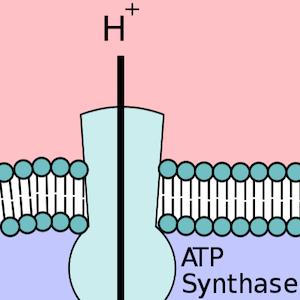Energy efficiency is the ability of a machine to put precious energy to good use. The most intuitive example is fuel efficiency, which is usually measured in miles per gallon (mpg). A typical car might have a fuel efficiency of 25 mpg, which means that it can travel 25 miles on a single gallon of gasoline. The higher the number, the better.
More generally, energy efficiency can be calculated as the useful energy output of a machine divided by the energy input it received. From the perspective of moving a vehicle forward, a car is about 12% to 30% energy efficient. The rest of the energy is needed to move various parts of the car or is lost as heat.
What's the most energy efficient thing on Earth? A strong case can be made for the cell, the basic unit of life.
Energy Efficiency of Cells
Your body is an amazing machine. Cars can only burn gasoline, but your body can use several different fuel sources: carbohydrates (sugars, starches), proteins, and lipids (fats). Neurons are primarily powered by glucose (a sugar), so even if you insist on eating a low-carb diet, your body will convert the proteins and fats you eat into glucose, just so your brain won't starve. Blood glucose levels are tightly regulated, precisely for this reason.
Indeed, glucose is the favored fuel not just of our brains but of our other body cells, as well. The cell's metabolic pathways are centered around the "burning" of glucose to generate energy. How do cells do it?
They do not do what a combustion engine does: Combine fuel directly with oxygen. That would be a total waste. The reason is because combusting glucose (literally burning it) would release too much energy at once, and the cell would not be able to capture it.
As an analogy, think of taking a shower. You might use 20 gallons of water. If all the water was dumped on your head in one second, that would not be a very useful shower. Instead, you use the water slowly over a period of about 10 minutes. Similarly, cells slowly release the energy of glucose in a controlled manner. Piece by piece, glucose is stripped of hydrogen atoms and high-energy electrons that the cell can eventually use to make ATP, its stored form of energy.
How much energy can ATP store? Biochemists calculate that for every 686 Calories provided by glucose, ATP can capture about 262 Calories, for an energy efficiency of 38%. According to the popular textbook Human Anatomy & Physiology by Marieb and Hoehn, cells are "far more efficient than any man-made machines, which capture only 10-30% of the energy available to them."
That's a bold claim. Is it true?
It very well could be. It's tough to compare the energy efficiency of a cell to say, a car, because we aren't comparing the same outputs. (The output we care about for a car is miles driven, while the output measured by biochemists is a molecule called ATP.) Given the caveat that we aren't really comparing apples to apples, how does the 38% energy efficiency of a biological cell compare to other man-made things?
As discussed above, cars are only about 12% to 30% energy efficient, with the best cars having a "tank-to-wheel" efficiency of 36%. Inside EVs, a website dedicated to promoting electric vehicles, claims an overall efficiency of 73% for battery electric vehicles, but this is sort of cheating. The electricity had to come from somewhere.
Since the website is environmentally focused, let's assume it prefers solar and wind power. The very best (and most expensive) solar panels are 46% efficient at converting sunlight to electricity; wind turbines are limited by Betz's law to a theoretical maximum of 59.3% efficiency, but in real life, turbines convert wind energy to electricity at 75% to 80% of the Betz limit. Combined with the aforementioned 73% efficiency for battery electric vehicles, that means a "solar-to-wheel" efficiency of 34% and a "wind-to-wheel" efficiency of 35%.
The Cell: Most Energy Efficient Thing on Earth?
So, what's the verdict on the cell? For sure, it's very energy efficient. It's tough to conclude that it is the absolute best, however, because what we're measuring (the energy content of ATP) is quite different from what we measure for other machines. And, of course, when the cell uses ATP to do things (like move around), it will suffer the same sorts of energy losses and inefficiencies that man-made machines endure.
One final point: Every energy conversion results in inefficiencies that are physically impossible to overcome. It seems that roughly 40% energy efficiency is about as good as anyone (man or nature) can achieve. That's why a belief that solar power could ever be 100% efficient is based on fantasy.




